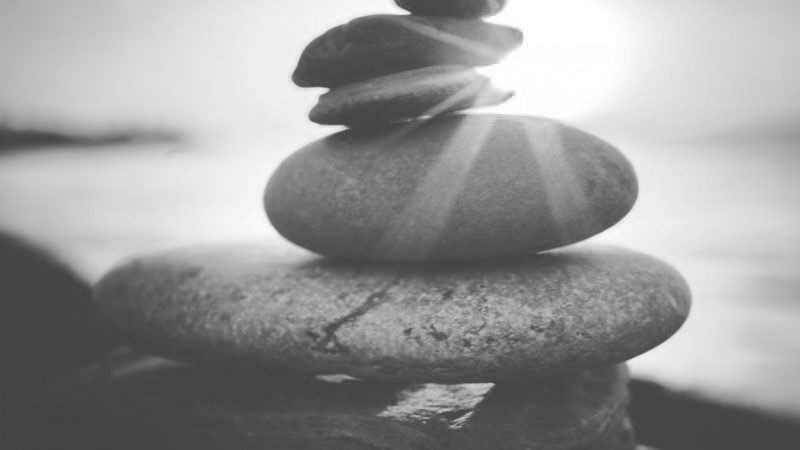TO MARK MENTAL HEALTH ACTION DAY, WE ASKED SOME MEMBERS OF THE WELLBEING COMMUNITY TO SHARE SOME ACTIONS THEY TAKE TO PRIORITISE THEIR MENTAL HEALTH. TO MARK MENTAL HEALTH ACTION DAY, WE ASKED SOME MEMBERS OF THE WELLBEING COMMUNITY TO SHARE SOME ACTIONS THEY TAKE TO PRIORITISE THEIR MENTAL HEALTH.

“Depression is anger turned inwards” – my Psychiatrist.
Like many people, particularly women, I grew up believing I should never be angry. Various influences taught me that it is bad to be an angry woman — she is ugly, untrustworthy, and unhealthy. I became expert at denying myself anything resembling anger, avoiding conflict, taking responsibility for maintaining harmony, and never having a strong opinion.
At 33, I experienced a profound loss that triggered a major depressive breakdown. Sitting in front of my psychiatrist week after week, I gradually began to understand his statement. Anger is an essential step in the grieving process, but because I couldn’t allow myself to even acknowledge anger I wasn’t able to grieve and move on from my loss. Over the years, a repressive toxicity collected inside me, condensed over decades, and had finally imploded. I was pulled into a blackhole of depression where my ability to feel anything was gone. All that existed was a robotic sense of nothingness. I was trapped in the vacuum of depression for 13 months.
I became expert at denying myself anything resembling anger, avoiding conflict, taking responsibility for maintaining harmony, and never having a strong opinion.
Several years later, I’ve experienced several different types of grief including the loss of: a belief system, people I’ve loved, faith in those I’ve trusted, an organisation and team I co-created, a perception of my identity and contribution in the world. With each loss the invasive thoughts of depression and anxiety attacks have resurfaced.
While I’m still terrified of depression and what it takes away from me each time, the length of my episodes have decreased as I’ve gathered tools that increase my awareness of when I’m repressing anger and skills to redirect the process towards allowing myself to feel and work through it.
The journey is often one step forward and two steps back as I clumsily learn to explore expressions of anger. But I’m making messy progress.
Tools that help me realise I’m repressing anger :
- Weekly Therapy: Being completely honest with my psychologist about my symptoms and thoughts.
- Keeping a list of my cognitive biases and unhelpful assumptions that I can refer to and ask myself if I am unwittingly applying them. A few example: I must never show anger; I must always improve a situation; I must not be a burden to others).
- Let others around me know what signals to look for and how to gently ask me if that might be what’s happening when they notice those signals.
- Dream analysis with my psychologist or psychiatrist.
- Time in nature to allow space for subconscious thoughts to rise to consciousness.
Skills I use to redirect myself towards working through anger:
- Saying out loud to someone I can trust, ‘I’m angry–here’s why…’.
- Writing about why I might be angry and why I might be repressing that reaction.
- Gradual exposure therapy exercises set by my psychologist.
- Reading about why it’s not unusual to repress anger and the benefits of unlearning it (the book, Rage Becomes Her was a great example of this).
- Meditation focused on awareness and acceptance of anger.
- Controlled destruction (I went to a smash room on one occasion; took a hammer to a watermelon in my back garden on another).
- Finding those who understand the type of situation that made me angry and discussing to gauge if anger seems to be a normal or appropriate response.
- Asking others what their strategies are for appropriately and healthily acknowledging, expressing, and processing anger.
My hope is to eventually feel comfortable in acknowledging, experiencing, and expressing anger in a way I’m confident is productive and appropriate —regardless of what other people think. Because what could be more beautiful, honest, and healthy than being able to embrace the entire emotional spectrum of the very human condition of love and loss.
Bio
Jessamyn Shams-Lau was previously co-CEO of the Peery Foundation, where she implements and advocates for grantee-centric philanthropy, aiming to minimize the power dynamic inherent to grant-making. She is creator of Do Good Better, a university curriculum for social change leaders, and co-wrote and illustrated the book Unicorns Unite: How Nonprofits and Foundations Can Build EPIC Partnerships with Jane Leu and Vu Le.
















































Leave a Reply